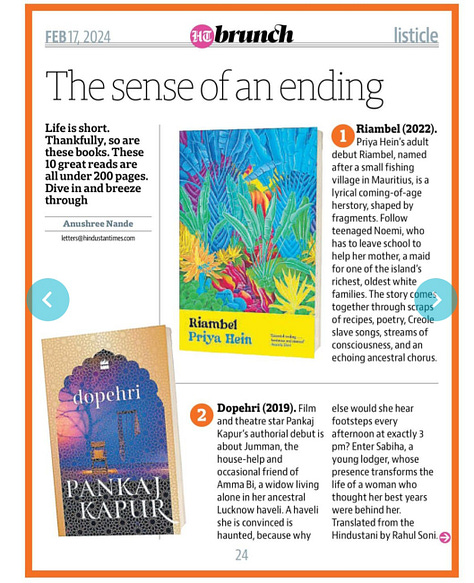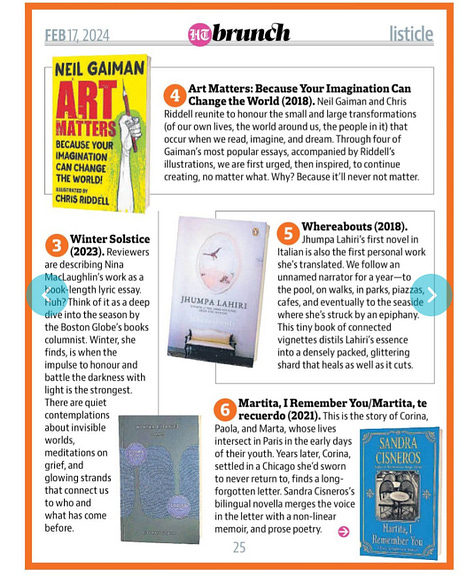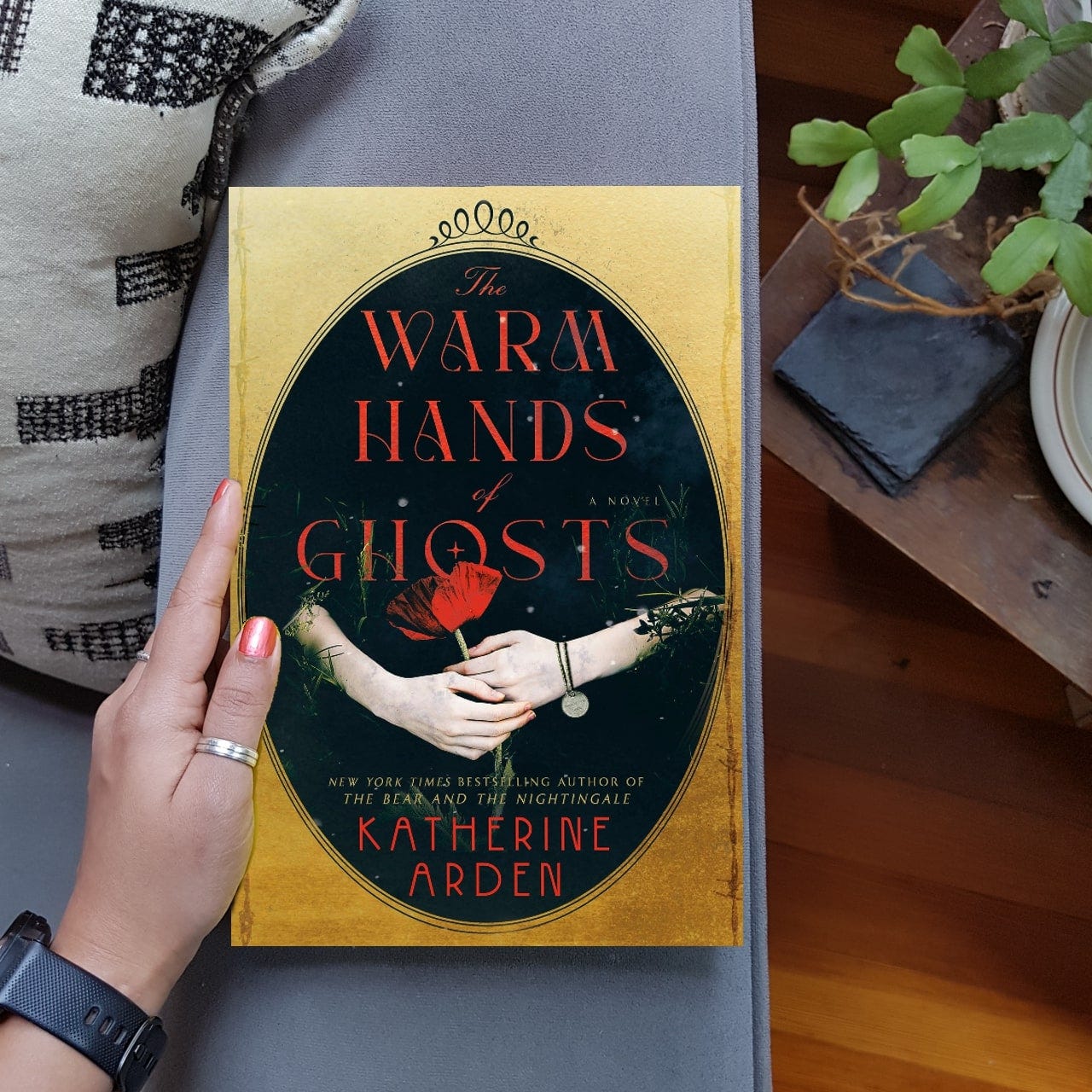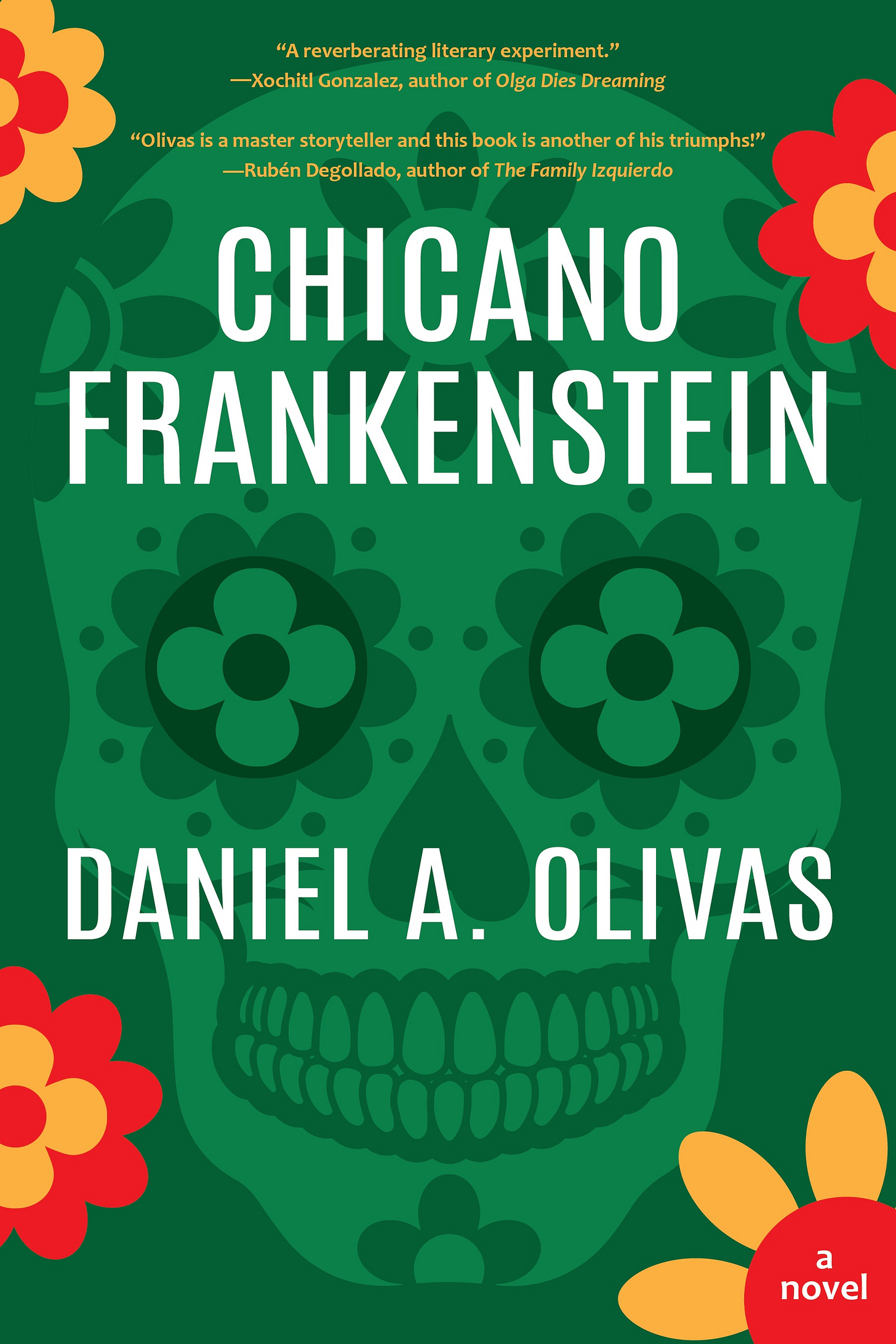Anu Recommends #45
Ghosts and Monsters: speculative history and political-satire-sci-fi-horror
Dear reader,
I’ve been a huge fan of Katherine’s work since the Winternight trilogy (remind me to post about it in an issue one of these days) and I couldn’t contain my excitement when I was not only approved to read an Advance Review Copy of her latest novel for adults, but she also agreed to an interview!
The interview is something to look forward to later in the year because of some unforeseeable logistical shifts, but today I’m thrilled to share my thoughts about The Warm Hands of Ghosts (or The Fiend as Katherine’s been calling it over the course of the nearly five years she’s worked on the manuscript), which was released in the US on February 13, and comes out worldwide on March 7 via Penguin Books.
In today’s issue I’m pairing it with a shorter review of a book that came across my radar only by chance (I was asked by The Rumpus if I was available to interview the author—I’ll share the interview link here once it goes live). It was an unexpected, but thoroughly enjoyable, discovery, and if you read this issue till the end, you’ll know what I mean when I say that they pose some of the same questions, and you’ll see why I wanted to include the recommendations together.
But first a little writing update. HT Brunch published a recommendation list by me in their issue yesterday: 10 books under 200 pages. You can read it here (my article is on pages 25-27):
https://epaper.hindustantimes.com/brunch?editionid=13&issuedate=17/02/2024



Spot any favourites?
Now, onward.
The Warm Hands of Ghosts
It is January 1918 and Laura Iven—wounded, discharged, celebrated field nurse with the medical corps—has returned home to Halifax, Canada. But she hastens back to Belgium as a volunteer as soon as she receives word of her brother Freddie’s death in combat; the reasons for and circumstances surrounding which don’t wholly make sense. The truth is out there and Laura is determined to find it.
In the parallel storyline, it is November 1917 and, following an explosion, Freddie Iven finds himself trapped in an overturned pillbox with a wounded enemy soldier, the German Hans Winter.
Amidst all of this, there are rumours. Of hauntings and ghosts, alive and dead, and a mysterious man with the power to offer oblivion from this earthly hell flung upon them.
The author's note states that the turbulent years of World War I set the stage for the rest of the tumultuous 20th century, laid the groundwork for the modern world, and she wanted to try and make some sense of it all, even as she paid respect to and remembered all those lost. (It may surprise some of you to know that the largest American military cemetery abroad is at the Aisne-Marne American Cemetery in Belleau, France, and not in World War II’s Normandy.)
‘It deserves our attention.’
And what better time period for applying the speculative touch? What she refers to as the steampunk nature of the war—‘as close to a moment of historical science fiction as we will ever get; an indescribable mashup of changing mores and technologies.’ And its participants, like time travellers, were people of one era flung without warning, and rather traumatically, into another. The shocking juxtapositions give the war a hint of the fantastic, or at least of the darkly surreal.
‘It is perhaps not surprising that a substantial part of the Great War’s cultural influence was filtered through fantasy. It was a time so rawly traumatic that its survivors barely had language to describe it.’ (Tolkien, anyone?)
Katherine Arden spent years chasing the answers to certain questions and she is still looking; her musings and discoveries infuse, intoxicating, the pages of this new world that “eats sinners and saints, all alike”.
What kind of master do these twentieth-century hellscapes have, if at all? What would a devil of the old world do if he found himself in the hell of the new one?
What do humans do when thrown, unprepared, into a strange new world, changed against their wills, marking out the new boundaries of themselves?
There are also other questions raised with no right or wrong answers, no definitive conclusion.
What memories can we bear to lose without losing ourselves? Who are we without the memories?
Could one rid oneself of grief and sorrow without losing the rest?
Was remembered agony better than feeling nothing at all?
Did the abyss have borders? Could the monsters be placated, after all?
You may know that Katherine Arden's Winternight trilogy ranks among my favourites, so I'd been eagerly anticipating this story.
I wasn't disappointed.
The Warm Hands of Ghosts (Del Rey Books, 2024) is a very different narrative to Winternight, which was magical and wondrous, more keenly fantasy than this current offering. Ghosts is a fever-dream: haunting, breathless, brilliant, shadowy, violent, and ethereal. This is historical fiction with dark shades of the otherworldly and even darker shades of humanity. And there are, among these ruins and in this desolation, shoots of beauty, love, and the frailest but also most stubborn hope—against all odds.
How did we get here? How did it all come to this? Laura asks herself, at one point.
Later, more urgently, how do you go on from the end of everything?
Chicano Frankenstein
When we forget too much, change too much, do we still remain ourselves?
This is a question voiced by both books in this issue, even though one takes place in the depths of World War I and another is rooted firmly in a postmodern world that has known the pandemic but has some differences to our present.
In Daniel A. Olivas’s inventive and compellingly readable Latinx retelling of Mary Wollstonecraft Shelley’s classic, reanimation à la Frankenstein is controversial but (in many countries) legal. In this United States of America the ageing workforce is being strengthened by such “stitchers” but there is also growing mistrust against them, and newer restrictive laws being proposed, ahead of upcoming midterms. In this world, as an unnamed paralegal navigates his new stitcher life (every stitcher is a blank slate), he meets and falls in love with Faustina Godínez, a lawyer. This causes long-reaching, and eventually life-changing, ripples in the paralegal’s existence.
Chicano Frankenstein (Forest Avenue Press, 2024) is simultaneously expansive and intimate with the chapters that alternate between the inner and outer world of this unnamed paralegal and the ones that deal with the ongoing politics of the country he lives in. There’s science fiction, horror, (unexpected but very welcome)humorur, political satire, and existential questions to boot. Olivas deftly juggles the mundane and the surreal with shades of the dystopian, all the while effortlessly navigating his American and Chicano/Latinx heritage, and his identity as a Los Angeleno. And sticking to a core personal writing ethos, he wastes no words—“Say what you mean and get out.”
What does it mean to be human, to be The Other, a monster, to belong? How important is it to know who we really are and where we come from? Is it possible to be whole if you’re stitched together from the parts of others? How can you have a future without a past?
You may not have all the answers by the end, but the journey is guaranteed to be compelling.
Did either of these catch your eye? Let me know!
Please feel free send in recommendations—books, movie, TV shows, authors to interview, ideas of what you’d like me to write on, rants/ramblings/excited monologues, GIFs and memes (especially them) and more. Just drop me a line and turn this into a conversation, even if just to say hi and let me know what you thought of the latest issue. Or share this with someone you think might enjoy it. I always enjoy hearing from you 😊
Take care and I’ll see you next on March 3!
Anu
You can find me on Twitter at @AnuNande (follow for all the football chatter) and on Instagram at @booksinboston.



